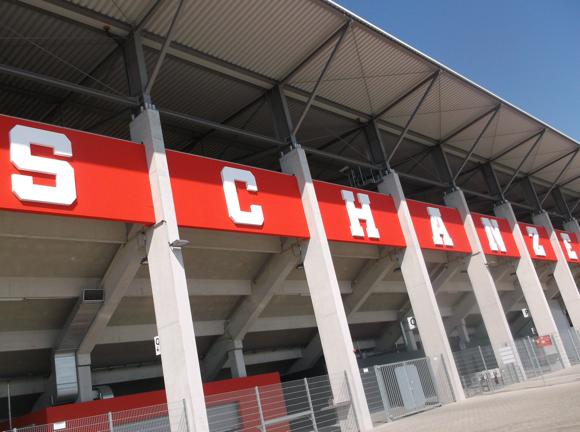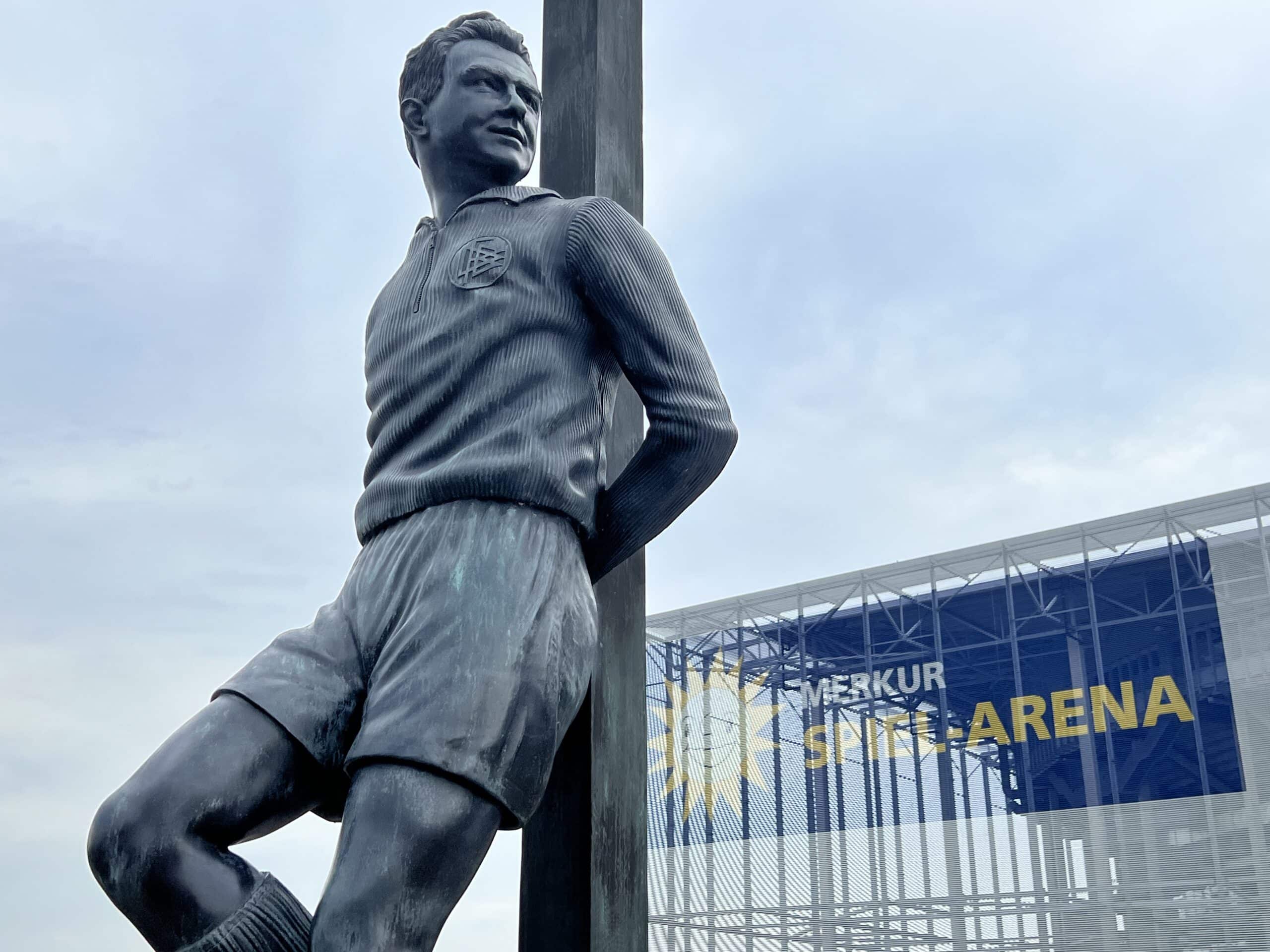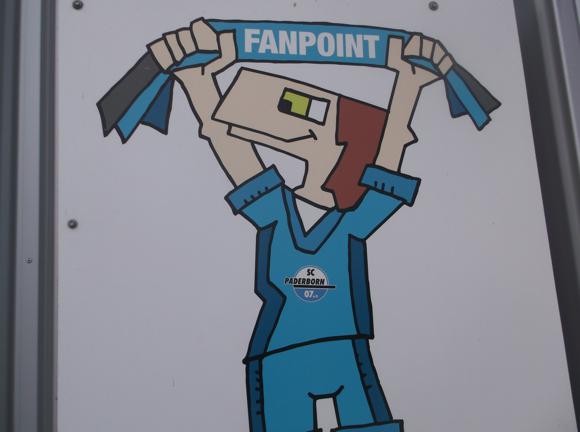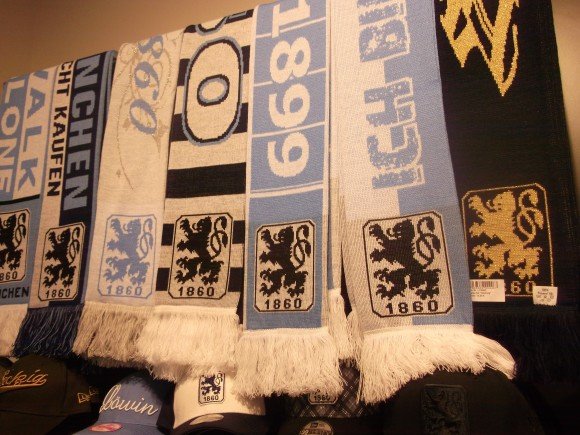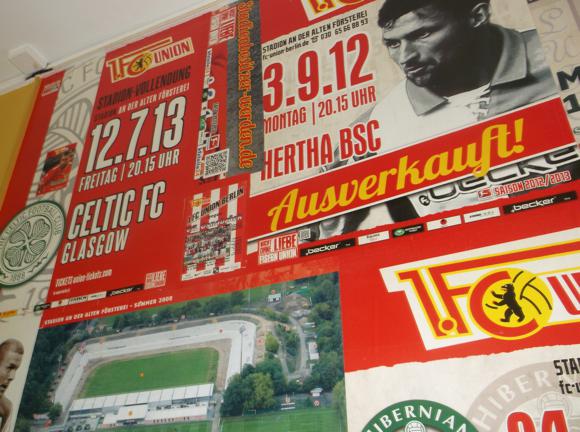A fan’s guide – the club from early doors to today
One of the most derided sides in modern-day football, RB Leipzig represent the Austrian energy drink brand, Red Bull, rather than the grand, historic city of Leipzig.
Created, literally, in 2009, RB Leipzig are equally vilified for being extraordinarily successful. From jumping into bed with Markranstädt, fifth-flight non-achievers from outside Leipzig, the German element of this global franchise has leapfrogged up the divisions on the strength of the licence gained from an original transaction of a few hundred thousand euros.
From the 5,000-capacity Stadion am Bad in Markranstädt, and a league debut against Carl Zeiss Jena reserves in 2009, RB have risen to the top of German football. Within a 24-hour period in December 2016, the club took on Bayern Munich as neck-and-neck Bundesliga leaders and announced the purchase of the Red Bull Arena, the former Zentralstadion national stadium that once held 120,000 people.



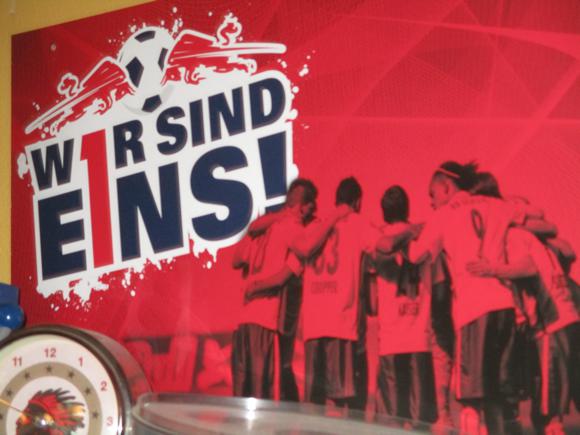


In reaching the top, they have ridden roughshod over the most sacred principle in the German game, that of club ownership by members, the so-called 50+1 rule that gives dedicated supporters the right of veto over any oil mogul who happens to own their club. Setting fees for membership with voting powers at ten times that at, say Bayern Munich, has allowed RB to circumvent the otherwise healthy foundations upon which Germany has built an egalitarian, affordable and enviably successful game at domestic and international level.
The reaction at other clubs, or rather by supporters of other clubs, has been scathing, even violent. From refusing to visit what is now the Red Bull Arena to throwing paint at the team bus, fans of Borussia Dortmund and even Bayer Leverkusen (!) have shown their contempt.
The name alone, RB (officially standing for ‘RasenballSport’ – ‘Lawn Ball Sport’) is laughable.
Gaining a trickier licence for the 2. Bundesliga, RB gave a creditable account of themselves in 2014-15 – but it was time for Ralf Rangnick to step in as head coach. Starting the 2015-16 campaign by opening a €35 million training centre, RB offloaded Joshua Kimmich to Bayern and bought the equally promising Davie Selke for €8 million from Werder Bremen, a record buy for a second-tier club.


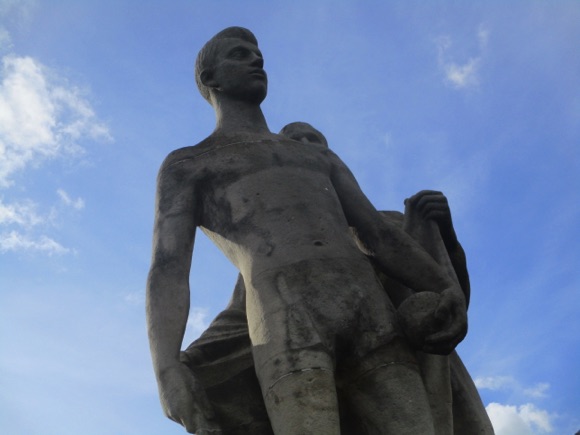



Selke, named Golden Player of the U-19 Euros in 2014 and later to star for Germany at the 2016 Olympics, was a typical RB signing. Rather than pay €30 million-plus for a crowd-pulling international in his thirties, the club relied on Rangnick’s instincts for young football talent.
Sure enough, in May 2016, a 2-0 win over Karlsruhe gained RB promotion to the Bundesliga, causing a beer-wielding Selke to chase Rangnick round the pitch in celebration – and the head coach to pull a hamstring.
Now with the big boys, for 2016-17 Rangnick called on Ralph Hasenhüttl to coach his boys. A forward at SV Austria Salzburg before Red Bull stepped in, Hasenhüttl had worked miracles at Ingolstadt, Bundesliga newbies the season before.
Apart from 19-year-old Scottish striker Oliver Burke, signed from Nottingham Forest, Rangnick kept faith with the core of the promotion side, forward Terrence Boyd, midfielder Marcel Sabitzer and winger Emil Forsberg now long-established internationals for the USA, Austria and Sweden respectively.

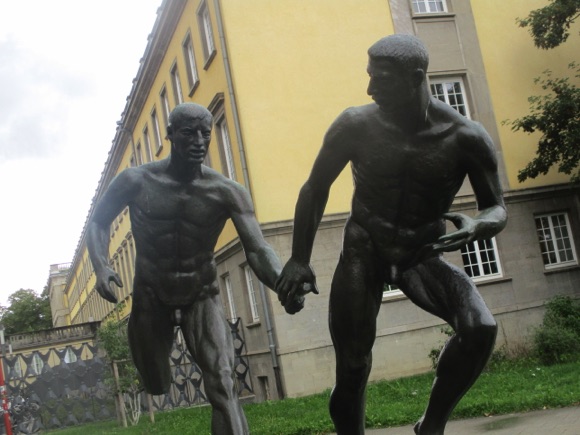


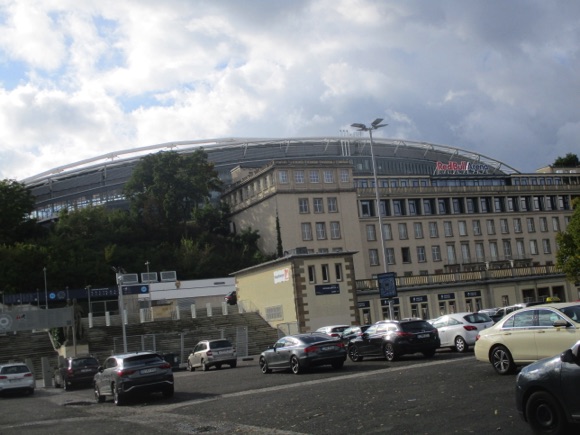
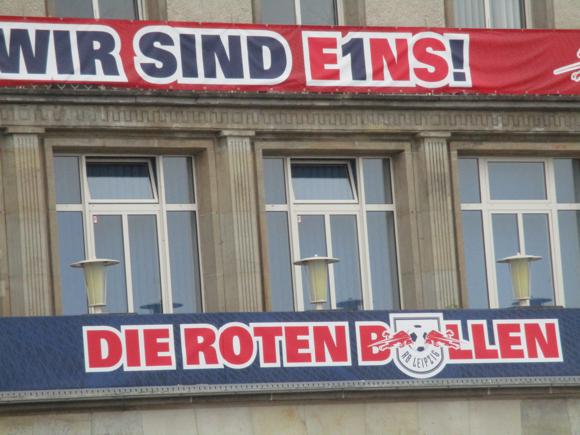

The results were revolutionary. Knocking aside Dortmund in the second game, thrashing a woeful HSV in Hamburg and overcoming Bayer in Leverkusen, RB won ten of their first 13 league games, going until mid-December unbeaten.
That was in the league. The cup was a different matter, as classic old GDR side Dynamo Dresden overcame RB on penalties after a 2-2 draw, 29,000 baying for blood at their venerable ground. Displaying old GDR flags and throwing coins at RB players, Dynamo’s notorious fans surpassed themselves when they hurled a severed bull’s head towards the pitch. Some things, it seems, never change in the former East Germany.
RB eventually claimed runners-up spot in the Bundesliga, earning a Champions League berth and subsequently making a run in the Europa League past Napoli and Zenit St Petersburg. Incoming young striker Timo Werner proved the star of the show, the highest-scoring German in the league. Within a year, however, the novelty and the momentum had gone, and it took the fresh impetus of coach Julian Nagelsmann for RB to hit top form.
Leading the league going into the new year in 2020, Leipzig brushed aside Tottenham in the Champions League Round of 16, Austrian midfielder Marcel Sabitzer hitting a brace in a memorable night at the Red Bull Arena.
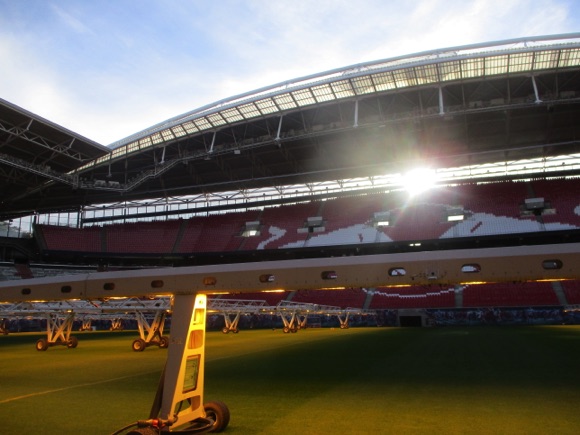
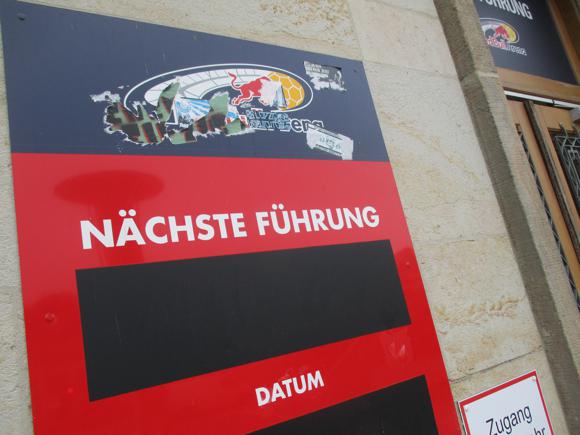
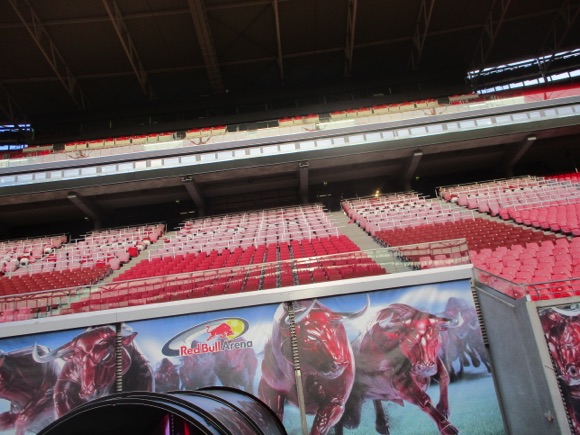


After the post-lockdown restart, Nagelsmann’s men picked up where they left off, although drew too many games to put in a serious title challenge. Later US team captain Tyler Adams, a young recruit from Red Bull’s New York enterprise, hit the late goal that pushed RB past Atlético Madrid and into a Champions League semi-final with star-studded Paris Saint-Germain.
Showing the French team a bit too much respect, Leipzig failed to seize their moment but Sabitzer, 34-goal Werner and Hungarian goalkeeper Péter Gulácsi could look back on the 2019-20 campaign with great pride.
Coming through, meanwhile, was prolific French striker Christopher Nkunku, an ex-PSG graduate of Fontainebleau. Such were his prospects that RB cashed in on Timo Werner, selling the German international to Chelsea before he could take part in Leipzig’s Champions League run-in, held over until August due to the pandemic.
A more solid if less goal-happy Leipzig claimed runners-up spot in the Bundesliga in 2021, having gained revenge of sorts over PSG with a narrow win in the Champions League group stage, Nagelsmann overcoming his former mentor Thomas Tuchel in the battle of the German coaches.



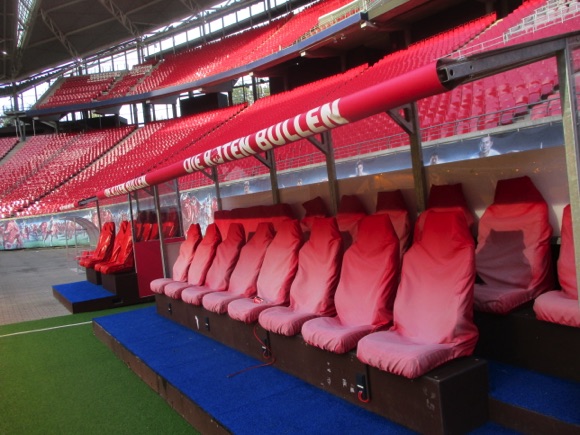

The revenue from the Werner sale allowed RB to buy Hungarian wunderkind Dominik Szoboszlai and Croatian centre-back Joško Gvardiol, while players such as Malian midfielder Amadou Haidara and German flank player Benjamin Henrichs were now well established. Swedish international Emil Forsberg was a 40-game-a-season man and reliable provider of chances for the prolific Nkunku.
Despite a stoppage-time penalty from Szoboszlai to level matters against PSG, Leipzig failed to qualify from a tricky Champions League group. A run in the Europa League almost brought the German side to the final, but for a spirited performance by Rangers in Glasgow after RB won the home leg of the semi-final. Despite a red card on the hour mark, Leipzig did claim silverware at last thanks to a cup final win over Freiburg on penalties.
The return of Timo Werner in 2022, for less than half the fee Chelsea paid for him two years before, allowed RB to overcome holders Real Madrid in the Champions League group stage. Nkunku and André Silva kept the goal tally buoyant as RB stayed in the title race under Marco Rose.
The Leipzig-born coach led RB to their successful defence of the DFB Pokal in 2023, a fitting farewell for goalscorers Nkunku and Szoboszlai, both bound for the Premier League for €130 million between them. Rose’s men held their own in 2023-24, making Real Madrid work for their narrow win in the Champions League Round of 16.


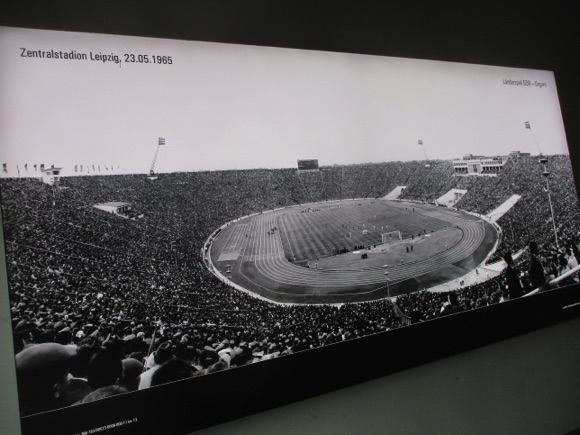




Stadium Guide
The field of dreams – and the story behind it



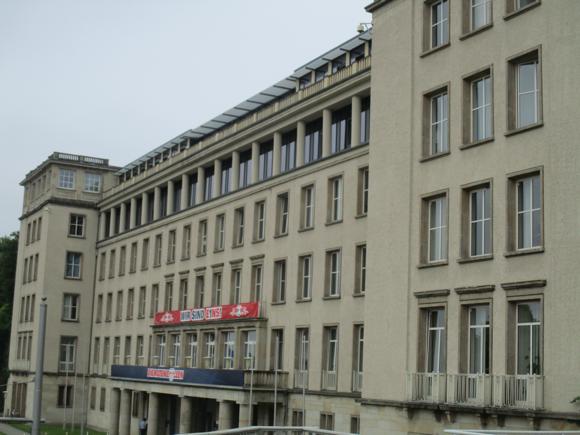

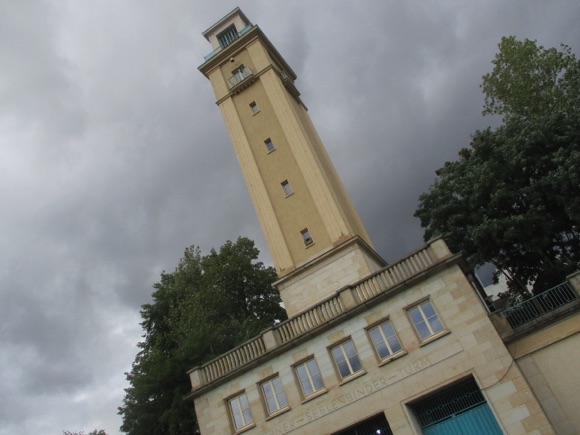
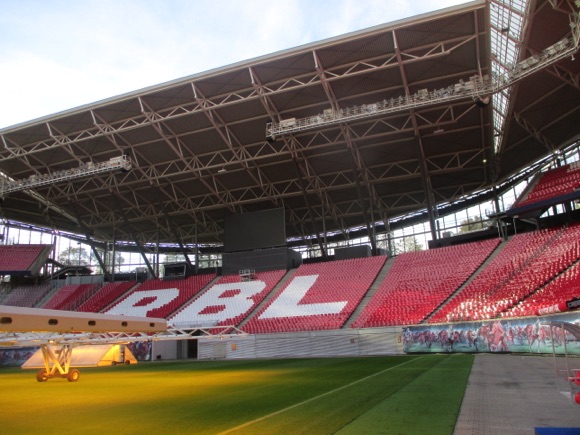

When RB Leipzig moved into what was the Zentralstadion in 2010, the place was far too vast for their modest needs as a Regionalliga side with 4,000 crowds. By the time they bought Red Bull Arena in December 2016, there were plans in place to increase capacity from 42,558 – now reached for every home game – to 57,000.
Still ringed by heroic statuary from when the ground was constructed, brick by brick, by Leipzig citizens in the mid-1950s, the former Zentralstadion will soon be rebuilt in stages, losing is neo-classical look of the Soviet days.
Back then, 100,000-plus crowds filled the arena for major East German internationals. For the 2006 World Cup, a new ground was built with the exterior of the old one, with walkways connecting the two. Since 2006, the stadium had long lacked a home club with pulling power.


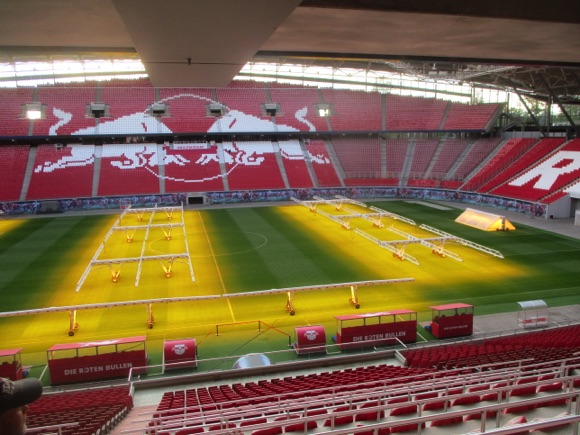


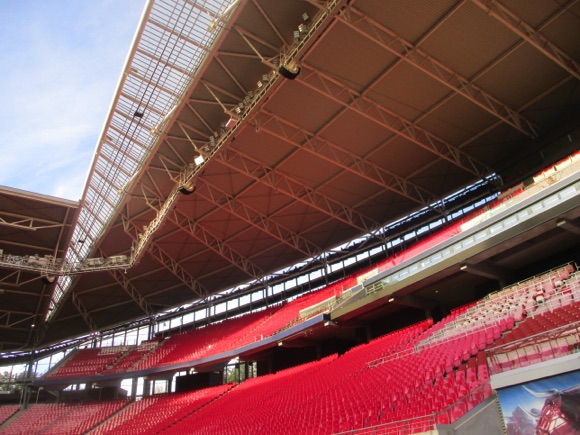

Renamed the Red Bull Arena in 2010, the ground still has the shape and configuration of the Socialist days, the sectors named A-D as would be the case across the former Soviet Union. Sektor B is the home end, still all-seated (like the rest of the stadium) despite calls for standing areas as found elsewhere across Germany for domestic fixtures.
There are also RB fans behind the other goal in sektor D. The Gästesektor is between sectors C and D in a far corner opposite the home end.
getting here
Going to the stadium – tips and timings





From platform 3 outside the train station, trams 3, 7 and 15 (Mon-Sat daytime every 10mins, Mon-Sat eve & Sun every 15mins) run four stops to Sportforum Süd (7mins), right by the stadium grounds.
For away fans, there’s also a shuttle bus that runs from the West Side of the main station from noon, then back from the stadium until 7pm if the game is a Saturday afternoon.
getting in
Buying tickets – when, where, how and how much








While RB Leipzig ride high in the Bundesliga, ticket availability is real issue. Nearly all matches are sold out, so unless you’re here for a friendly, a cup fixture or, as is likely in 2017-18, a European game, you might be struggling.
The club does advise that any returns are sold (cash-only) from 1pm at the main ticket office in the stadium forecourt before a 3.30pm Saturday kick-off. All ticket news during the season is posted on the club website.
In principle, there are advance sales about six weeks before each home game, first for those already registered online, then via online open sale, then in person from the Red Bull Shop (Mon-Sat 10am-8pm) at Neumarkt 19-23 in town and at the Arena Ticket (Mon-Fri 10am-7pm, Sat 10am-4pm), between the main tram-lined street of Jahnallee and the Red Bull Arena.
One final option is a ticket resale agency, such as Viagogo.
Prices are in three categories of matches, A-C, and differ in five areas of the stadium from the best over the halfway lines in A and C (€45-€65) to behind the goal in Fanblock B (€10). Average is around €30 near each goalmouth.
what to buy
Shirts, kits, merchandise and gifts



RB’s main outlets are in town (Mon-Sat 10am-7pm), at the Petersbogen shopping centre at Petersstraße 36-44, and at the stadium (Stadionvorplatz, Friedrich-Ebert-Straße 122; Mon-Fri 10am-6pm, Sat 10am-4pm, 3hrs before kick-off on Sun/hols).
Along with replica shirts, you’ll find branded wheatbeer glasses, tote bags with player caricatures on them, snoods and cruet sets – if you’re happy to wear Red Bull or have the logo around the house.
STADIUM TOURS
Explore the ground inside and out






The main tour lasts 60 minutes and reveals all kinds of secrets about the stadium’s construction, including how it was incorporated into the former Zentralstadion – you can literally see the join, as your guide will point out.
In fact, your journey starts in 1965, and the vast black-and-white photo of a packed Zentralstadion that fills an entire wall of the lobby area of the main Nord building where visitors assemble. The occasion was East Germany v Hungary, the crowd 100,000 and this was the national arena of the GDR in all its comfort-free glory.
From there, you walk into the 21st century, past the gap in time between the Berlin Wall falling and the rampant commercialism of Red Bull. First, though, came the 2006 World Cup, for which the stadium was modernised, before being reconfigured and rebranded.
Your visit then follows the familiar pattern of the press conference centre, mixed zone, home dressing room and the pitch itself. All is friendly, informative and casual, without the RB success story, nor the marketing vehicle behind it, being pushed at you.
Tours (€18, over-65s/15-18s €16, 3-14s €9) take place most days (not on/around match days) from mid-afternoon, just book your slot online. Tours are given in German, but your guide can also explain much of what’s going on in English – you can also book individual tours in English. Contact +49 341 124 797 777, email service@rbleipzig.com.
Also offered in the warmer months are night tours (€12, over-65s/15-18s €10, 3-14s €5) of the stadium from 6pm and, while the stadium and its grounds are still being converted to make a complete break from the arena’s Socialist past, construction site tours (€20, over-65s/15-18s €18, 3-14s €12). See here for details.
Where to Drink
Pre-match beers for fans and casual visitors




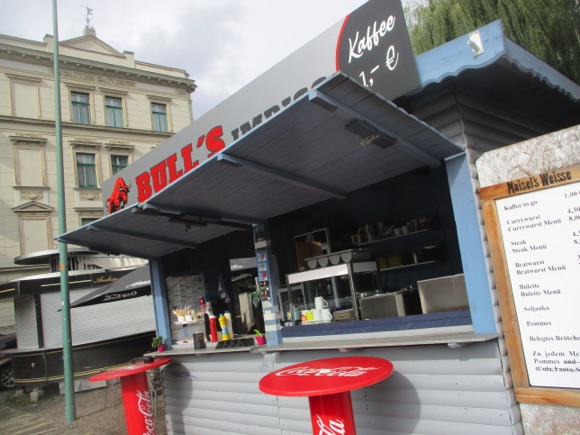
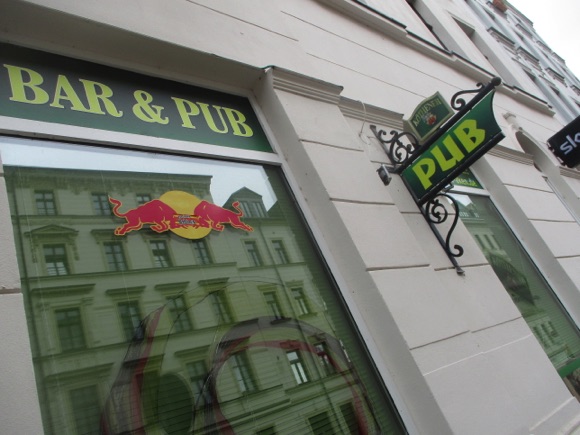
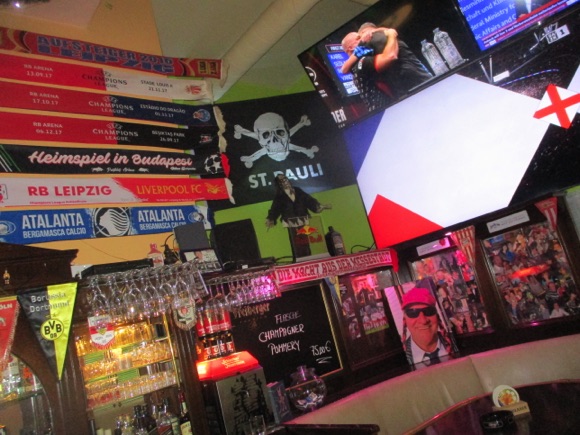

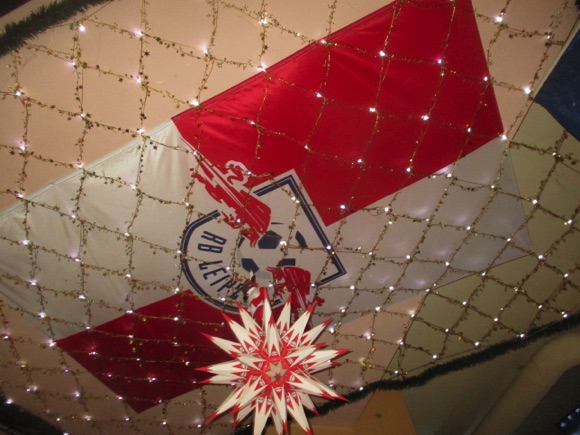
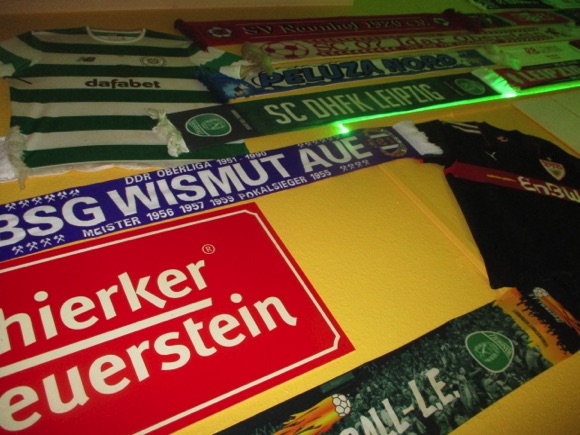
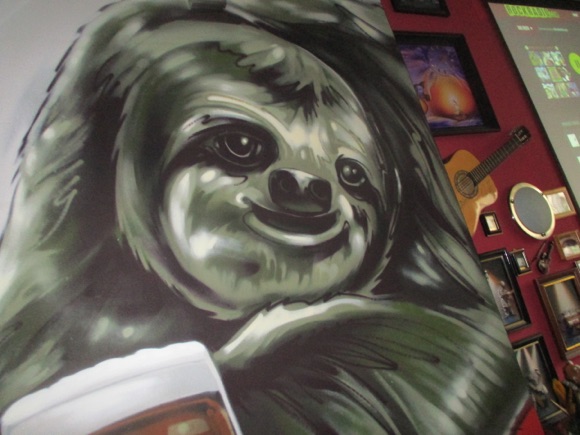
There are no bars in the immediate vicinity of the stadium but a hub of reasonably attractive pubs one tram stop before, at Waldplatz. On the corner of main Jahnallee and Waldstraße, Mick’s Pub is themed around RB Leipzig, rock and soft porn, opening its doors from 5pm. The tables outside offer a sunny pre-match spot in the warmer months. Guinness and local Ur-Krostitzer served on draught.
On the next corner towards the stadium, Bull’s Steak & Mehr is more a restaurant as its name suggests, but its Imbiss alongside is a handy stopover for beer and Currywurst. Further up Waldstraße, at No.29, the Sky-Pub Leipzig is ideal, a friendly little corner bar done out in football scarves (note the plentiful evidence of Celtic’s visit), dotted with TVs, opening at 5pm on weekdays, 3pm at weekends and closed on Mondays.
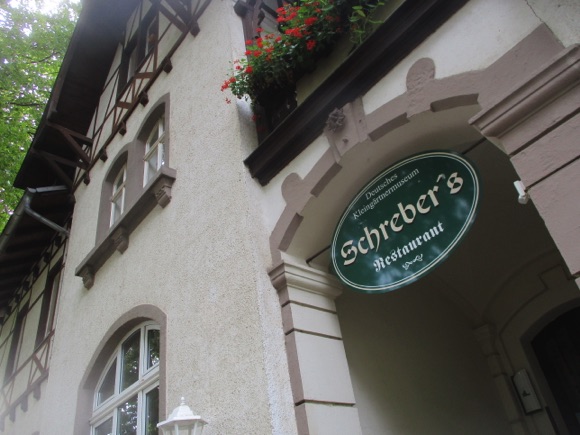


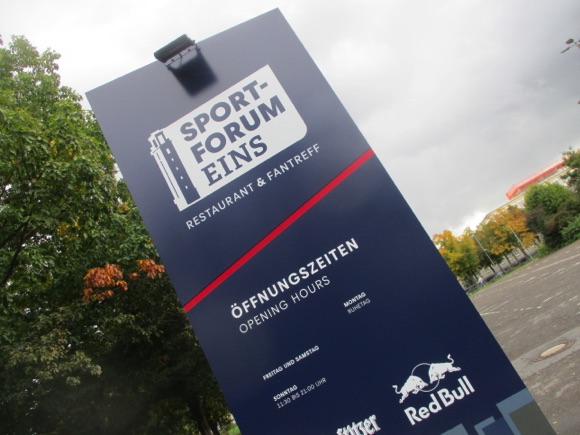



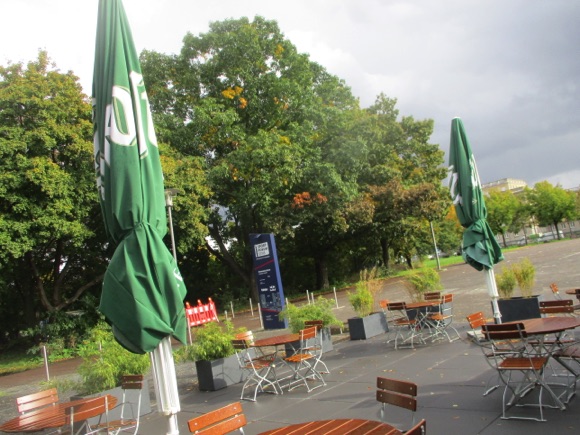



A little further away in the opposite direction, a stroll along Coblenzer Straße from main Jahnallee takes you to Schrebers at Aachener Straße 7, a great option in summer when the beer garden comes into its own. Open from 5pm Wed-Sat, noon on Sundays, an hour earlier between May and September. Set in well-kept grounds, the lovely old building also operates as the German Museum of Allotment Gardens, if that’s your thing.
At the stadium, RB fans gather at the match-day Fan Treff, a cubbyhole bar beside the staircase leading up to the main entrance from Jahnallee, while the featureless Sportforum Eins to the right of the stadium as you approach from the main road packs punters in for lashings of Ur-Krostitzer and sausages on game days. Outdoor tables come in handy on warm afternoons.















